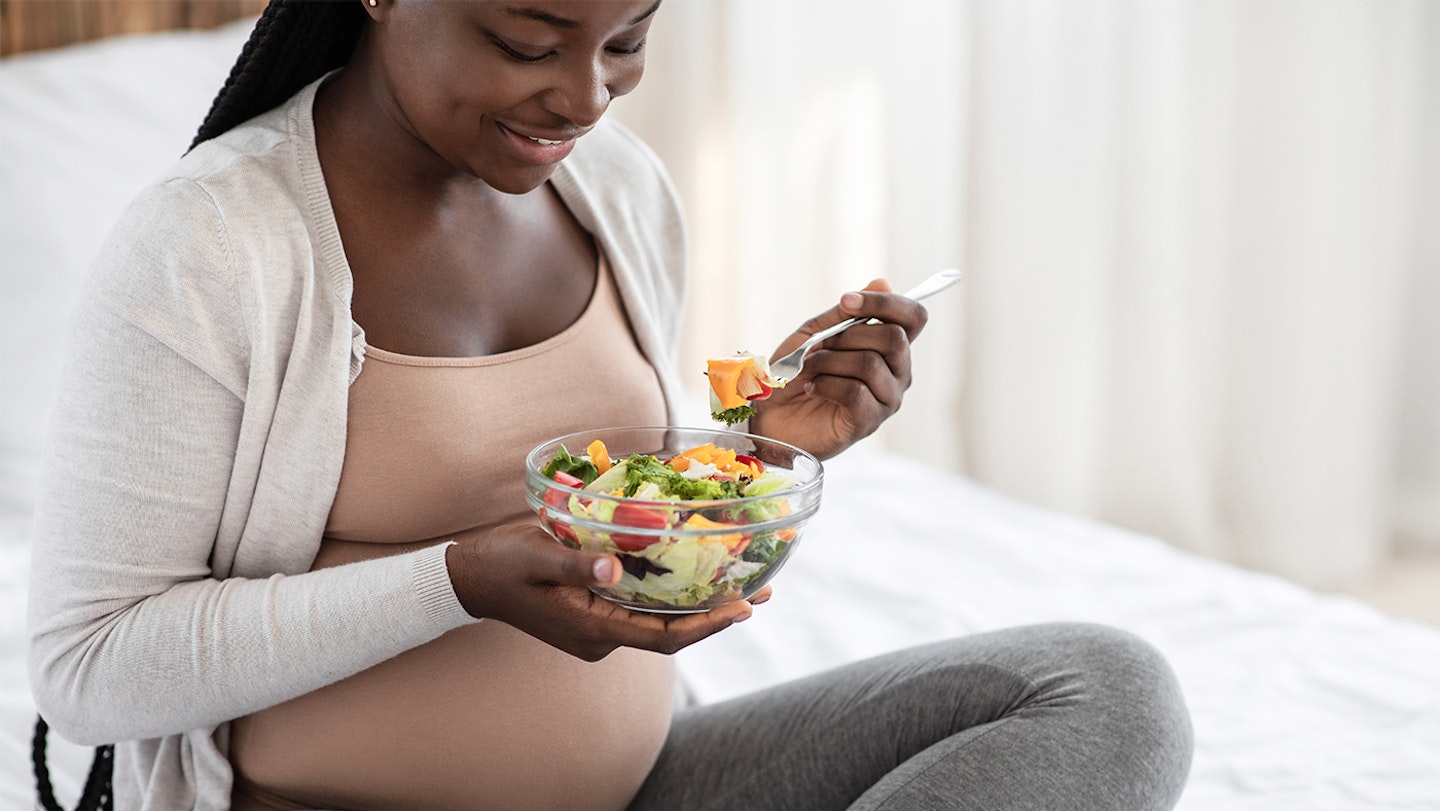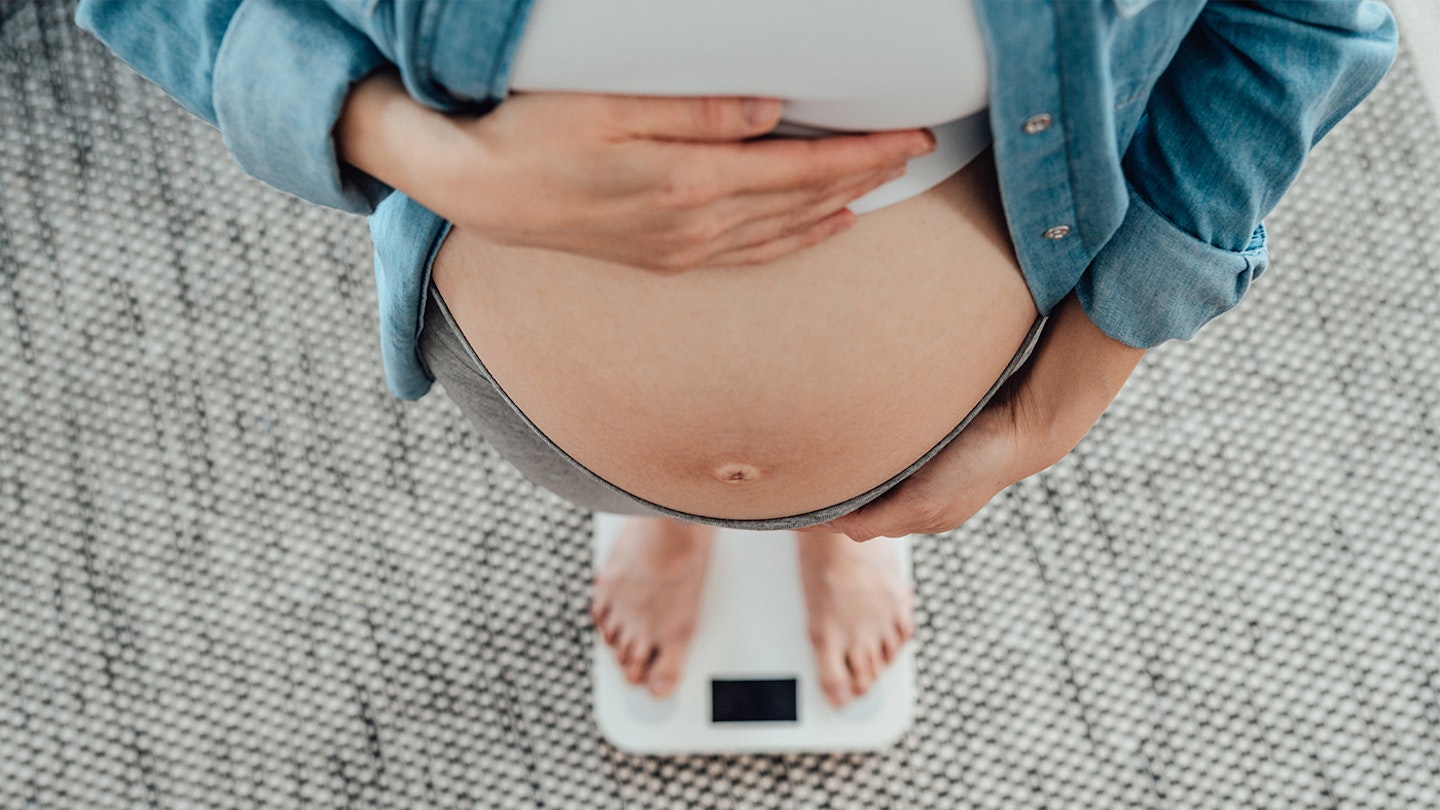Your body changes a lot during pregnancy and growing your beautiful baby will naturally result in some weight gain. If you're curious about how much you’ll put on over the next nine months, what’s normal and how much is too much, here's everything you need to know.
How much weight can I expect to put on now I’m pregnant?
It’s completely normal to put weight on when you’re pregnant. Every woman and every pregnancy is different and that’s why there are no official medical guidelines that say how much weight you should or shouldn’t put on. As a guide, many women put on between 22lb and 26lb during their pregnancies – the majority after 20 weeks – but it does depend on your own body, your height and pre-pregnancy body weight.
How does the extra weight add up?
There’s the weight of the baby itself, the amniotic fluid surrounding the baby and the placenta that’s providing its nutrients. These three will make up around a third of the pregnancy weight that you’ll put on. At birth in the UK, the average weight of a newborn baby is 3.3kg (7lb 5oz) – the majority weigh between 2.5kg (5lb 8oz) and 4.5kg (9lb 14oz). Your placenta is likely to weigh around 0.7kg (1.5lb) and the amniotic fluid about 0.8kg (1.8lb).
Your body also goes through big changes to support and grow your baby that add extra numbers to the scales. Gone up a cup size or two?The boost to your breasts has probably added around 0.4kg (0.9lb).
The volume of blood being pumped around your body increases, adding 1.2kg (2.6lb) and extra fluid is also retained, adding the same amount of weight again. The muscle layer in the uterus expands, adding 0.9kg (2lb) and you store fat to burn for energy for breastfeeding, weighing in at around 4kg (8.8lb). This all adds up to 7.7kg (16.9lbs) – the remaining two-thirds of the weight you’re likely to gain.
What if I was overweight before I got pregnant?
Your midwife will weigh you at your booking in appointment. If your BMI (your weight in relation to your height) shows you’re overweight it may increase your risk of having complications during your pregnancy and labour, including your chance of developing gestational diabetes, high blood pressure, which means your heart has to work harder to pump blood around your body and the chance that your baby will be large, presenting delivery problems and increasing your chance of a Caesarean section.

How can I make sure I don’t put on too much weight?
While pregnancy isn't the time to go on a diet, just as with pre-pregnancy, it’s important to eat a balanced, healthy diet – 2,000 calories a day is the recommended amount for women, even pregnant women – and to continue to exercise. Don’t believe the old wives’ tale that you should be eating for two – you don’t need any more calories until the last trimester when it’s advised that you consume an extra 200 calories.
If you previously went to the gym, don’t stop going, simply adjust your routine to safely accommodate your bump and get professional advice on how to exercise safely. If exercising at home is your thing, take a look at our pregnancy fitness DVDs or try swimming, yoga or cycling.
What can I do if I’m pregnant and underweight?
Your midwife will be able to give you nutritional advice to make sure you’re getting enough nutrients to feed both yourself and your baby. If your BMI is low, your baby could be born prematurely and may need extra care if they are small (low birth weight), so it’s sensible to follow their advice.
